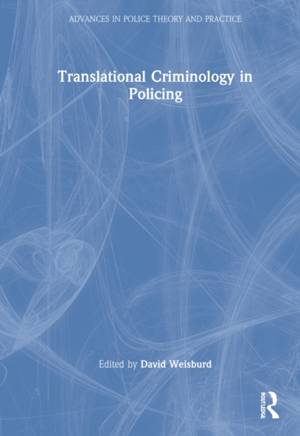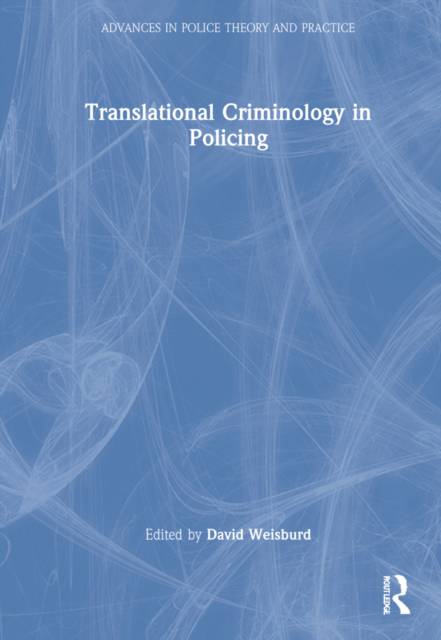
- Afhalen na 1 uur in een winkel met voorraad
- Gratis thuislevering in België vanaf € 30
- Ruim aanbod met 7 miljoen producten
- Afhalen na 1 uur in een winkel met voorraad
- Gratis thuislevering in België vanaf € 30
- Ruim aanbod met 7 miljoen producten
Translational Criminology in Policing
Omschrijving
With contributions from international policing experts, this book is the first of its kind to bring together a broad range of scholarship on translational criminology and policing. Translational criminology aims to understand the obstacles and facilitators to implementing research by decisionmakers to improve effectiveness, fairness, and efficiency in the criminal justice system. Although the emergence of the translation of knowledge from research to policy and practice has gained momentum in policing in recent years, it is imperative to understand the specific mechanisms required to create collaborative structures to produce and disseminate information. This progressive and cutting-edge collection of articles addresses the growing interest in creating and advancing evidence-based policing through translational mechanisms. It describes a varied, dynamic, and iterative decision-making process in which researchers and practitioners work simultaneously to generate and implement evidence-based research. Not only does this book incorporate a process for translating criminological information, it offers varying perspectives on researcher-practitioner partnerships around the world.
Translational Criminology in Policing provides practical principles to help research, practitioner, and policymaker audiences facilitate evidence translation and research-practitioner partnerships. It is essential reading for policing scholars and policymakers, and may serve as a reference and textbook for courses and further research in translational criminology in policing.
Specificaties
Betrokkenen
- Uitgeverij:
Inhoud
- Aantal bladzijden:
- 244
- Taal:
- Engels
- Reeks:
Eigenschappen
- Productcode (EAN):
- 9780367716325
- Verschijningsdatum:
- 19/05/2022
- Uitvoering:
- Hardcover
- Formaat:
- Genaaid
- Afmetingen:
- 178 mm x 254 mm
- Gewicht:
- 4526 g

Alleen bij Standaard Boekhandel
Beoordelingen
We publiceren alleen reviews die voldoen aan de voorwaarden voor reviews. Bekijk onze voorwaarden voor reviews.










